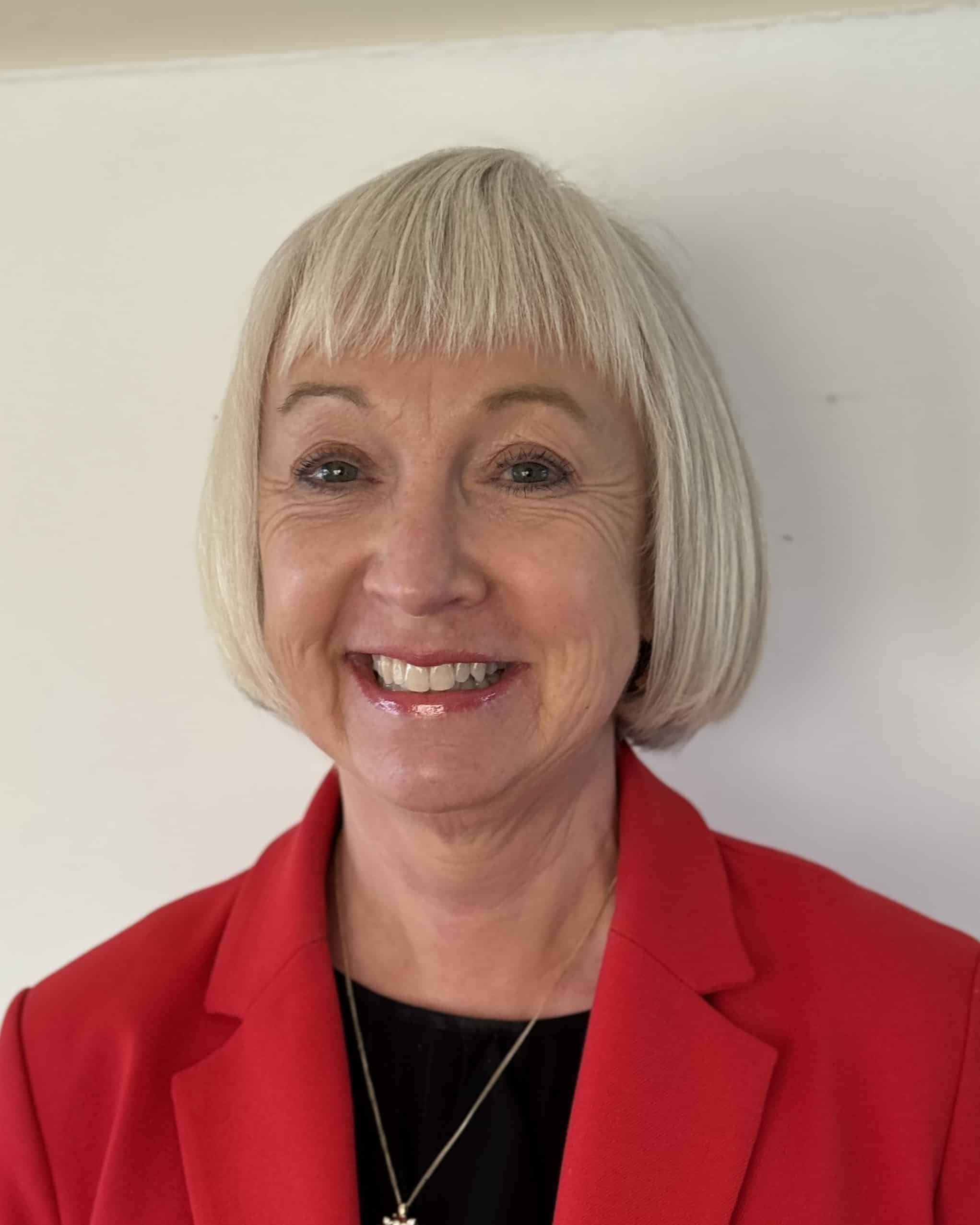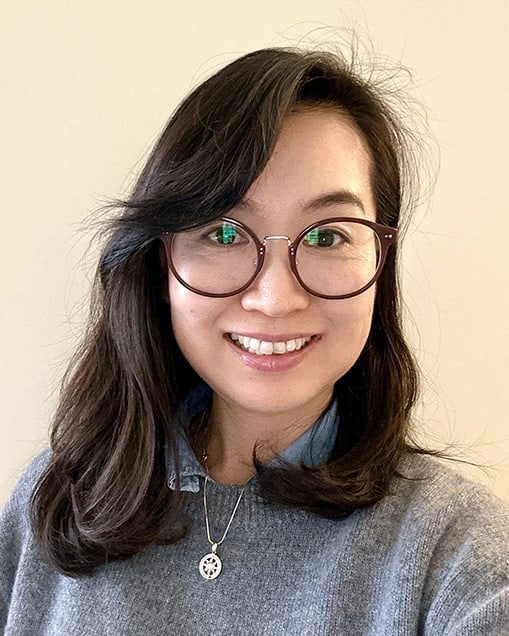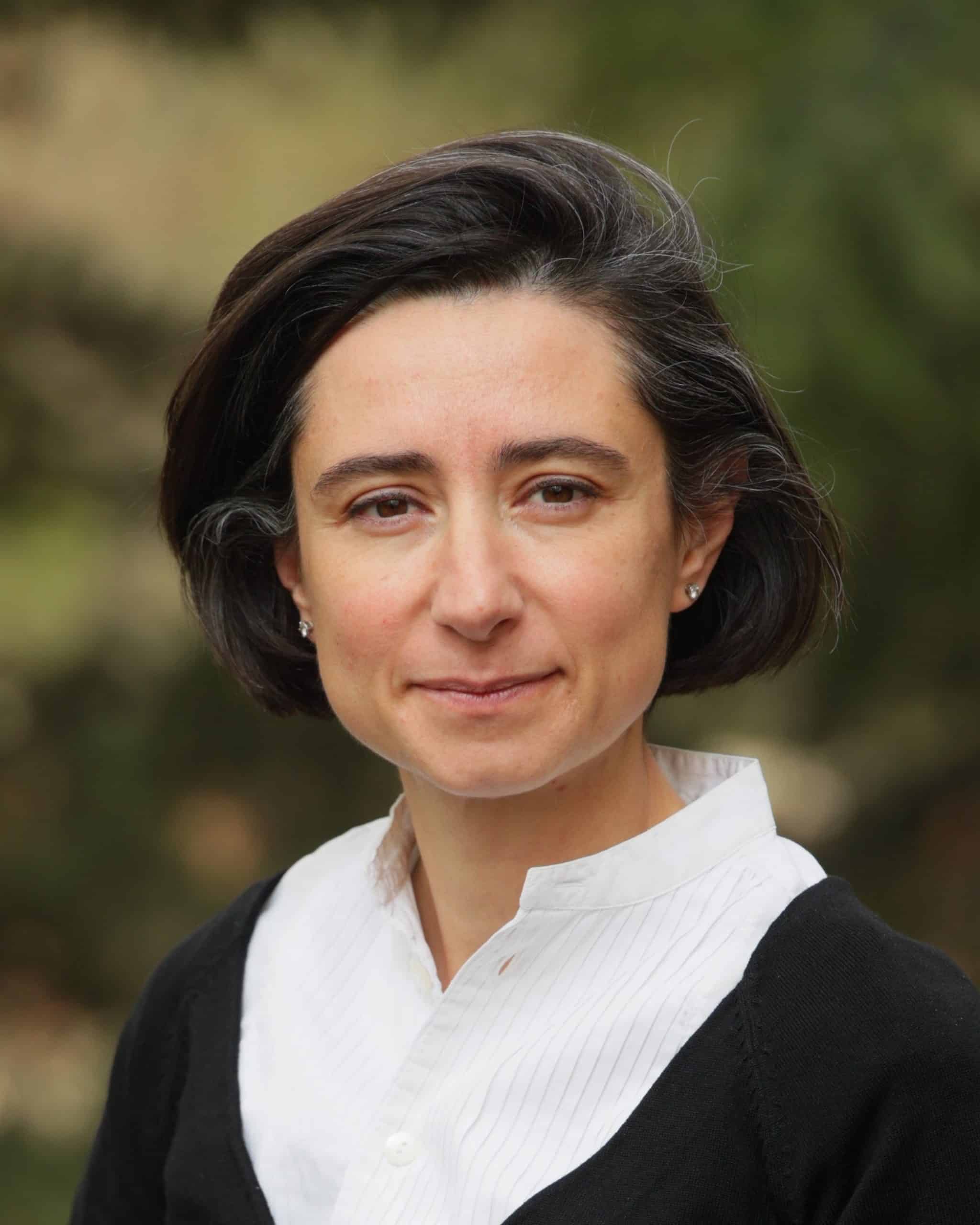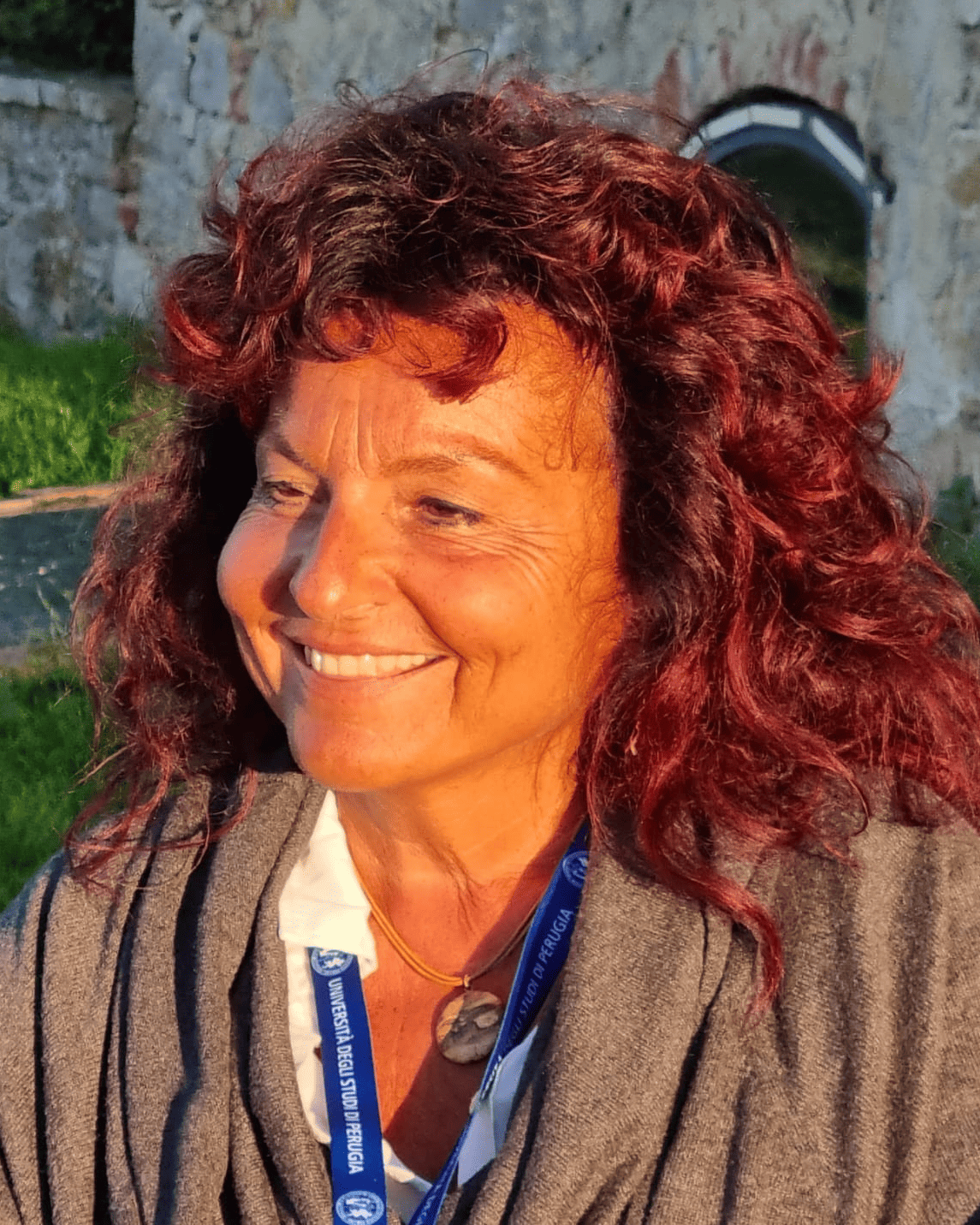VSS board members T. Rowan Candy and Jody Culham will be stepping down this year. Four candidates, nominated by the membership and selected by an independent Nominating Committee, will compete in pairs for the two open positions.
Each newly elected Director will serve a four-year term on the VSS Board of Directors. Responsibilities of the Board include scheduling the Annual Meeting, implementing and monitoring VSS policies and budget, fundraising, and other VSS-related activities.
How to Vote
Log in to your MyVSS Account. In the 2024 Board of Directors Election section, click the Vote button.
You must be a current Regular or Postdoc Member to vote. Other membership types will not see the 2024 Board of Directors Election section on their account home page.
Voting closes April 20, 2024 (11:59 pm latest time zone on earth).
Candidates for Position One
 Deborah Giaschi
Deborah Giaschi
University of British Columbia Website
Debbie Giaschi is a Professor in the Department of Ophthalmology and Visual Sciences at the University of British Columbia (UBC) in Vancouver, Canada. She studies motion perception, binocular vision and reading, with a particular focus on typical visual development and atypical development due to disorders such as amblyopia or dyslexia. Her research techniques include psychophysics and neuroimaging. Debbie completed her PhD in Experimental Psychology under the supervision of Stuart Anstis at York University, followed by postdoctoral fellowships in Ophthalmology with David Regan at the University of Toronto and with Max Cynader at UBC. She is an action editor for Perception and i-Perception and a former member of the editorial board of Journal of Vision. She has attended every VSS meeting, and has participated on Abstract Review, International Travel Awards, and Young Investigator Award committees. She was a speaker at a VSS @ ARVO symposium and a professor at Meet the Professors at VSS twice. She helps to promote women in vision science through the workshops and award competitions organized by Females of Vision et al (FoVea). She is active in anti-racism, diversity, equity and inclusion initiatives at UBC. She has experience organizing local, national and international conferences in Vancouver and the Pacific Northwest. Debbie would be honoured to serve on the VSS Board of Directors.
 MiYoung Kwon
MiYoung Kwon
Northeastern University Website
MiYoung Kwon currently serves as an Assistant Professor of the Department of Psychology at Northeastern University (Kwon Lab). She earned her Ph.D. in Cognitive/Biological Psychology with a minor in Statistics from the University of Minnesota in 2010. After completing her Ph.D, MiYoung joined the Computational and Functional Vision Lab at the University of Southern California as a postdoctoral research associate. Following her time at USC, MiYoung completed another two-year postdoctoral fellowship at the Schepens Eye Research Institute, Harvard Medical School. Between 2014 and 2020, MiYoung served on the faculty of the Department of Ophthalmology and Visual Sciences at the University of Alabama at Birmingham.
Through a multidisciplinary approach that combines psychophysics, computational modeling, eye tracking, brain and retinal imaging techniques, MiYoung’s research is dedicated to unraveling how the human visual system deals with sensory impairments. To this end, her work primarily focuses on understanding statistical properties of the visual world under degraded viewing conditions, the cortical representation of degraded visual information, and the subsequent modifications in perceptual and cognitive processing. Her past and ongoing research projects cover a broad spectrum of topics, including brain adaptability following central vision loss, information processing in peripheral vision, perceptual and cortical changes induced by prolonged contrast deprivation, and binocular interactions in amblyopic vision. Recent efforts have also delved into understanding the impact of ganglion cell pathology on spatial vision and exploring the effects of degraded visual inputs on oculomotor strategies. Therefore, her interdisciplinary research program integrates state-of-the-art research techniques and theoretical frameworks to bridge the gap between fundamental vision science and clinical applications. Her research has been funded by the NIH/National Eye Institute, the Eye-Sight Foundation of Alabama, and Research to Prevent Blindness.
MiYoung frequently serves on the NIH Scientific Review Panel. Furthermore, she has been an active member of VSS, serving on the Abstract Review Committee, Travel Awards Review Committee, and the Meet-the-Professors panel.
Candidates for Position Two
 Paola Binda
Paola Binda
Following Paola Binda’s graduation from San Raffaele University of Milano, Italy in 2010 (advisor: M. Concetta Morrone), Paola joined the VisCog laboratory at the University of Washington in Seattle as postdoctoral fellow to work with Geoff Boynton, Scott Murray, and Ione Fine. She was awarded a Marie Skłodowska-Curie fellowship and returned to Italy in 2013, where she joined the University of Pisa as assistant professor of physiology (she became associate professor in 2019). Paola’s lab is primarily funded by a ERC (European Research Council) Starting grant. They study how visual processing is shaped by multimodal context, which includes upcoming actions and predictions based on stimulus history. Their studies involve human volunteers, with a focus on neurodiversity. They use a combination of ultra-high field functional Magnetic Resonance imaging, psychophysics, eye-tracking and pupillometry.
 Patrizia Fattori
Patrizia Fattori
University of Bologna Website CV
Patrizia Fattori heads the Laboratory of Neurophysiology of Visuomotor Systems in the Department of Biomedical and Neuromotor Sciences at the University of Bologna, Italy. She studies the neural processes that link vision to action, using a broad range of methods, from neural recording in non-human primates and neuroanatomy of the circuits involved in these processes, to human psychophysics, fMRI, and transcranial magnetic stimulation.
Patrizia Fattori has been an active researcher in the field of the neurophysiology of the visuomotor system since 1990 except for three maternity leaves.
In her doctoral research, conducted under the mentoring of C. Galletti, she reported the existence of visual neurons with a receptive field that remains stable in space when the eyes move. This was the first demonstration of a non-retinotopic encoding of space. With Galletti, Pitzalis, and M. Sereno, she discovered a new motion area in the brain of both macaques and humans (V6). In both primates, V6 is part of a motion pathway that parallels the known pathway through area MT/V5.
Recently, Patrizia has been studying the reaching and grasping properties of the superior parietal cortex. She highlighted the existence of a medial reach-to-grasp circuit in the primate brain. This circuit, shown initially in the non-human primate, and later also found in the human brain, complements the classical lateral grasping circuit.
At present, she is implementing the results of her research in the field of artificial intelligence, where control inspired by properties of the primate visuo-motor pathways might help guide robotic hands, exoskeletons, and electronic wheelchairs, helping impaired people to make the best use of their remaining functions.
Her research has been supported by several EU collaborative grants and Marie Curie Actions. She is currently the coordinator of a Horizon 2020 grant.
Patrizia has been a long-time supporter of the VSS dating back to 2004, when she joined the Society. Since then, she has attended VSS every year. She is a member of the Abstract Review Board since 2017, was on the VSS Scientific Awards Committee (2019-2022), and took part in “Meet the professor” in 2019.
Current Board of Directors
The names, term-end dates, and areas of expertise are listed below. Terms end immediately after the VSS meeting of the year listed.
| Board Member | Term Ends | Expertise |
|---|---|---|
| T. Rowan Candy | 2024 | Visual Development, Clinical, Binocular Vision, Visual Optics, Eye Movements |
| Jody Culham | 2024 | Perception and action, Object recognition, Reaching and grasping, Neuroimaging |
| Geoffrey Boynton | 2025 | Visual Attention, Visual Prosthetics, functional MRI, and Computational Neuroscience |
| Shin’ya Nishida | 2025 | Motion, Color and light, Multisensory processing, Object recognition |
| Anya Hurlbert | 2026 | Color and light, Object recognition, Scene perception |
| Krystel Huxlin | 2026 | Motion, Perceptual learning, Plasticity, Psychophysics, Vision loss, Visual rehabilitation, Visual restoration, Anatomy, Neurochemistry |
| Richard Krauzlis | 2027 | Attention, Pursuit, Electrophysiology in Mice and Monkeys |
| Michael Landy | 2027 | 3D perception, Binocular vision, Sensory integration, Perception and action, Texture and Spatial vision, Material perception, Psychophysics, Computational models |
| Martin Rolfs | 2027 | Saccadic Eye Movements, Motion, Attention, Awareness, Eye-tracking |
